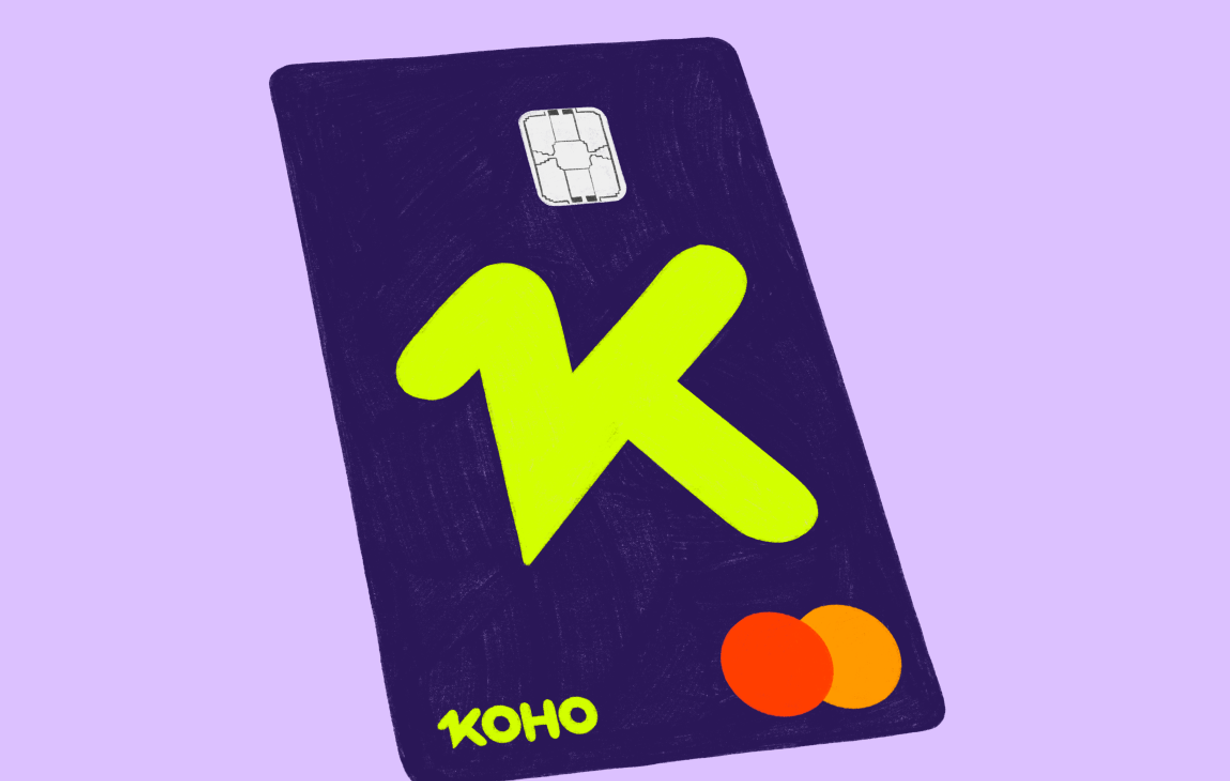If you’re trying to build or rebuild credit, the goal isn’t just “get any loan.”
You want small, manageable products that report to the bureaus and are easy to pay on time, every time.
Guaranteed approval to build your credit
Start With KOHO Essential + Credit Building
KOHO isn’t a bank—We are a financial service company that offers a spending and savings account with a prepaid Mastercard®.
KOHO Essential is designed to work like a no fee monthly account for most people because:
It has a low monthly plan fee that can be waived when you set up direct deposit or add +$1,000.
Add Credit Building for $10/month, get a dedicated tradeline with no interest and we report it to Equifax
Grow your savings with a 2% interest savings rate on your entire balance.
Earn 1% cash back on groceries, eating & drinking, and transportation.
Enjoy unlimited transactions (never worry about sending money to someone again).
Get approved today and you’ll be building better credit in no time
What Makes a “Good” Loan for Building Credit?
If you do use a loan to build credit, look for:
Reports to the credit bureaus – If it doesn’t report, it won’t help your score.
Small, affordable payments – You should be able to pay comfortably, even in a bad month.
Clear term and low fees – No confusing add-ons or junk fees.
Real purpose – Ideally you’re using it for something useful (or as a credit-builder product), not just to have more spending money.
Top Credit-Building Loan Options
1. Credit-Builder Loans
These are small loans designed specifically to build credit.
Often:
You “borrow” an amount that’s held in a locked account
You make fixed monthly payments over a set term
At the end, you get the money (minus fees), and you’ve built payment history
They’re simple and predictable—and work best when your budget is already stable.
2. Secured Credit Cards
Not a loan in the classic sense, but they behave similarly for your credit report:
You put down a security deposit
Your limit is often equal to that deposit
The card reports like a regular credit card
Used properly (low balance, on-time payments), a secured card can be a strong credit building tool.
3. Small Personal Loans
A small installment loan from a bank, credit union, or reputable lender can help if:
The interest rate is reasonable
The payment comfortably fits in your budget
You actually need what you’re financing (e.g., essential car repair)
This should be a supporting tool, not an excuse to overspend.
4. Auto Loans (If You Truly Need a Car)
If you genuinely need a vehicle and can afford it, an auto loan:
Shows up on your report as an installment tradeline
Can help build payment history
But it’s a big, long-term commitment—definitely not something to take on just for credit-building.
The Real Credit-Building Formula
No matter which product you choose, your score improves mainly from:
On-time payments (every time)
Low balances relative to your limits
Sticking with accounts over time instead of constantly opening and closing

About the author
Quan works as a Junior SEO Specialist, helping websites grow through organic search. He loves the world of finance and investing. When he’s not working, he stays active at the gym, trains Muay Thai, plays soccer, and goes swimming.
Read more about this author